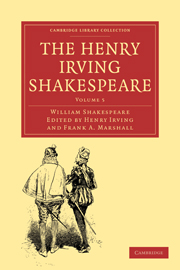4 - TEOILUS AND CEESSIDA
Published online by Cambridge University Press: 29 August 2010
Summary
INTRODUCTION
LITERARY HISTORY
“This,” says Dr. Furnivall, “is the most difficult of all Shakspere's plays to deal with.” I think we may accept Dr. Furnivall's statement of the case. The history of Troilus and Cressida is perplexed and confusing to an extraordinary degree; it has long been the crux of commentators, the sphinx-like problem to which the wise man will modestly say, “Davus sum, non Œdipus.” The date of the composition of the play; its relation to previous works upon the same subject; the circumstances attendant on its publication, both in the Quarto form of 1609 and later in the First Folio; the metrical peculiarities; the clear traces of irregular and composite workmanship ; the purpose of the piece, satiric, didactic, ironical, or what not, the idea, that is, that should run throughout, informing the parts with something of the continuity of an organic whole; all these are points upon which much has been conjectured and more written, and which, in spite of, or perhaps because of, the efforts of successive generations of commentators, remain as dark and bewildering as ever. Hence a complete theory which shall untie a]l the hard knots, must not be looked for. I shall content myself for the moment with a close statement of the facts, and later on there will be something to say as to the conclusions which may be drawn from the conflicting evidence. First, then, as to Shakespeare's choice of a subject.
The Troy legend was the favourite theme, the tale par excellence of mediæval romance writers; no other cycle of stories could in any way compete with it in point of widespread diffusion and popularity.
- Type
- Chapter
- Information
- The Henry Irving Shakespeare , pp. 243 - 342Publisher: Cambridge University PressPrint publication year: 2009First published in: 1889

